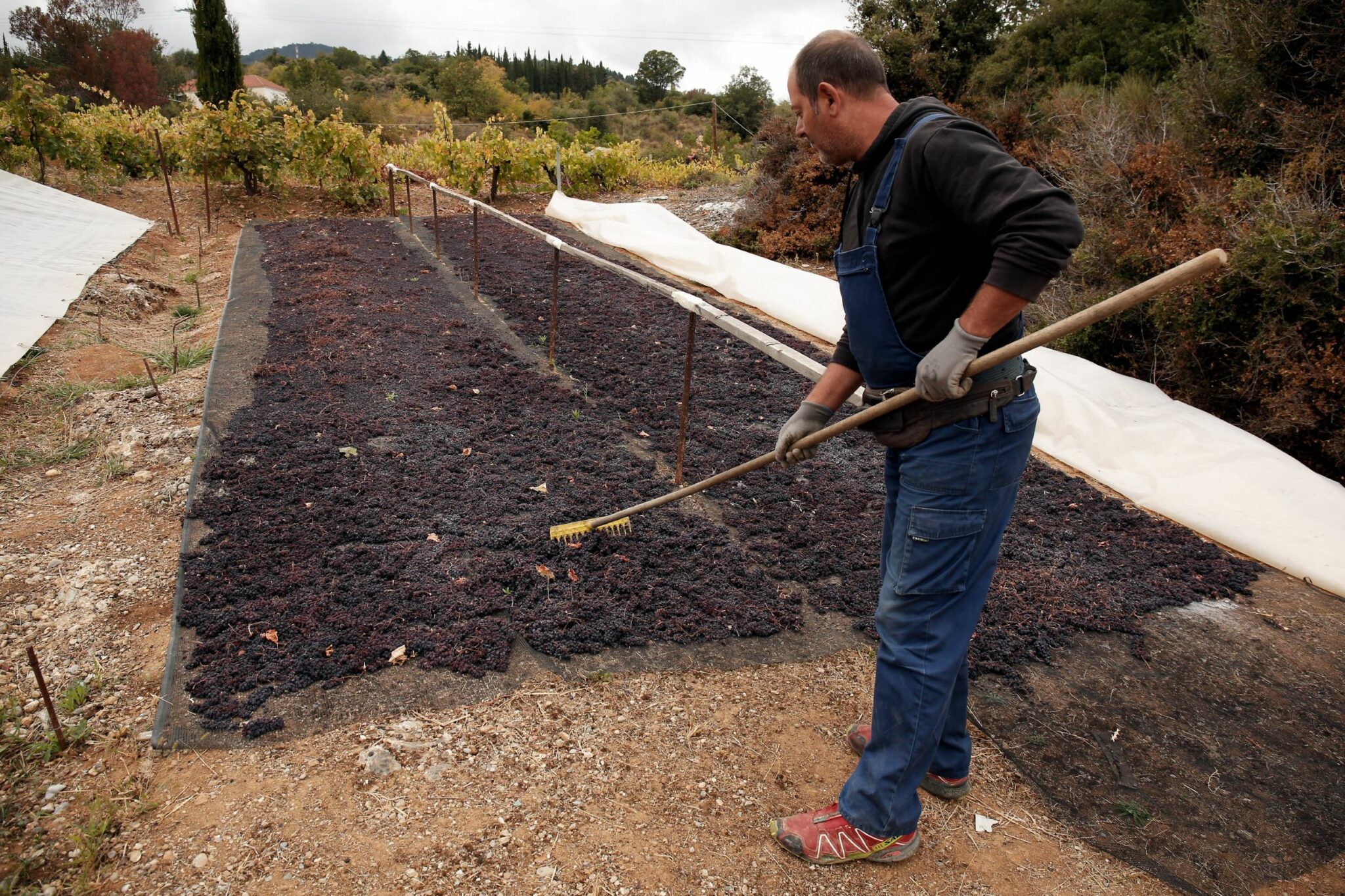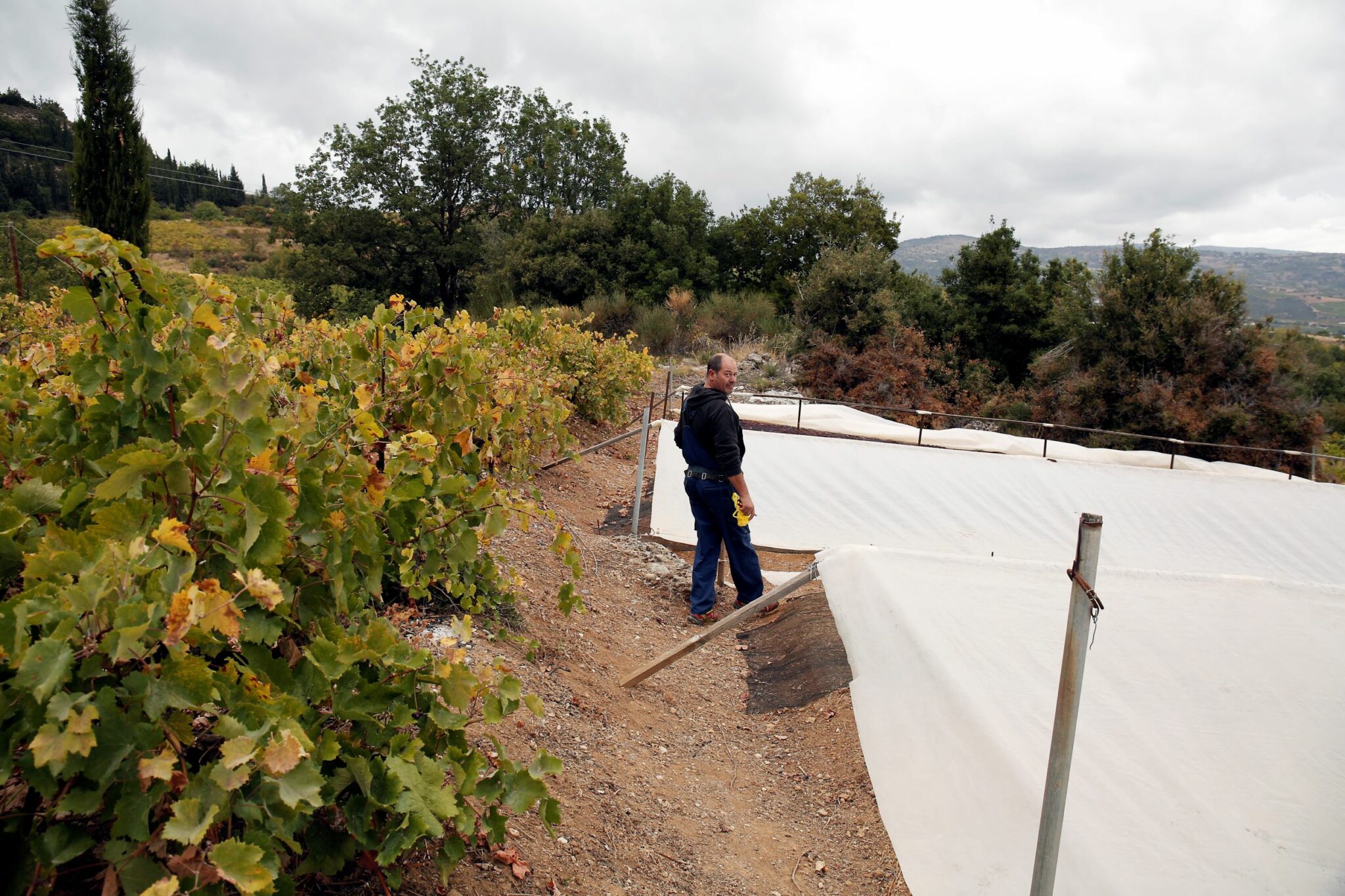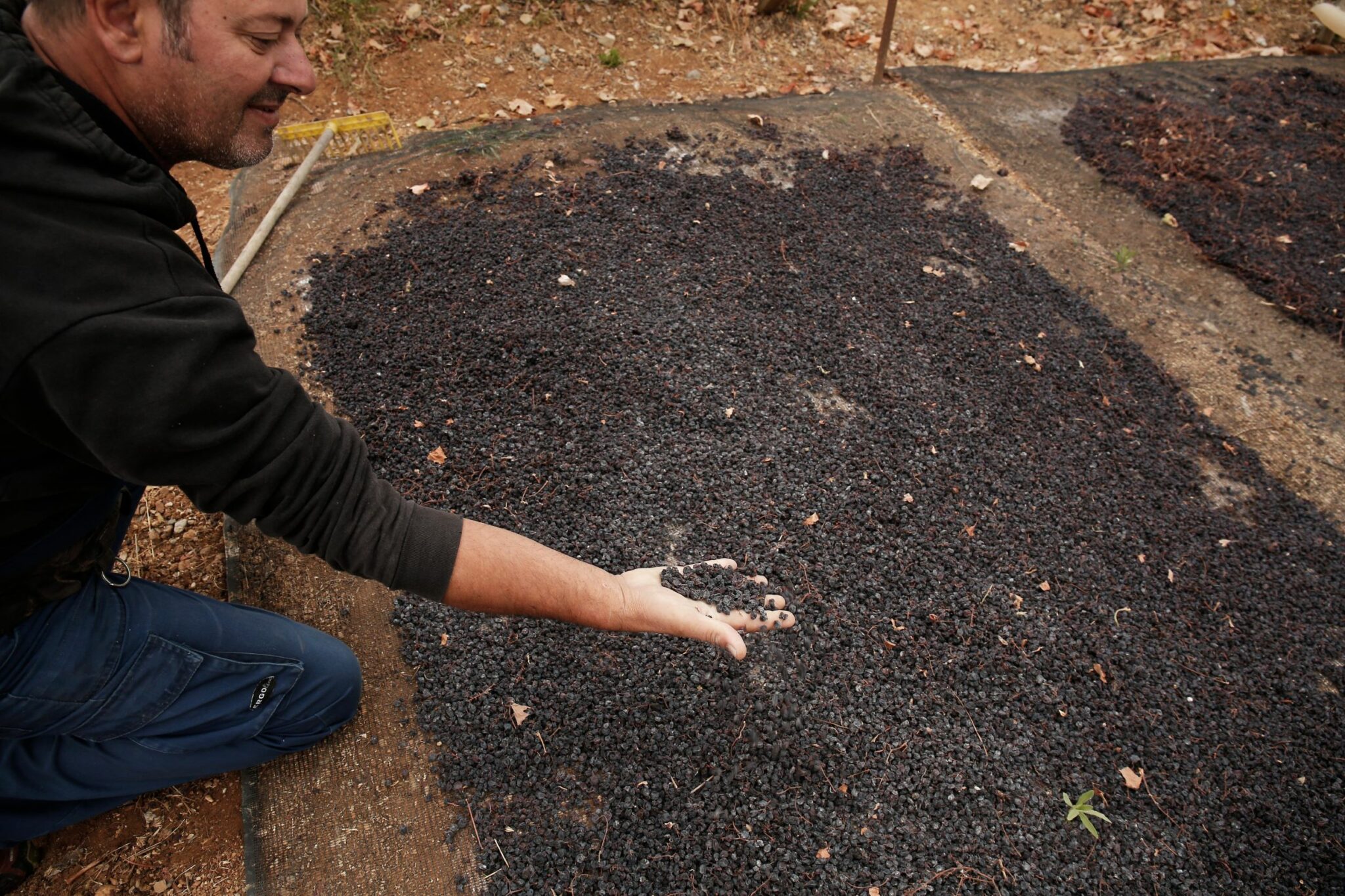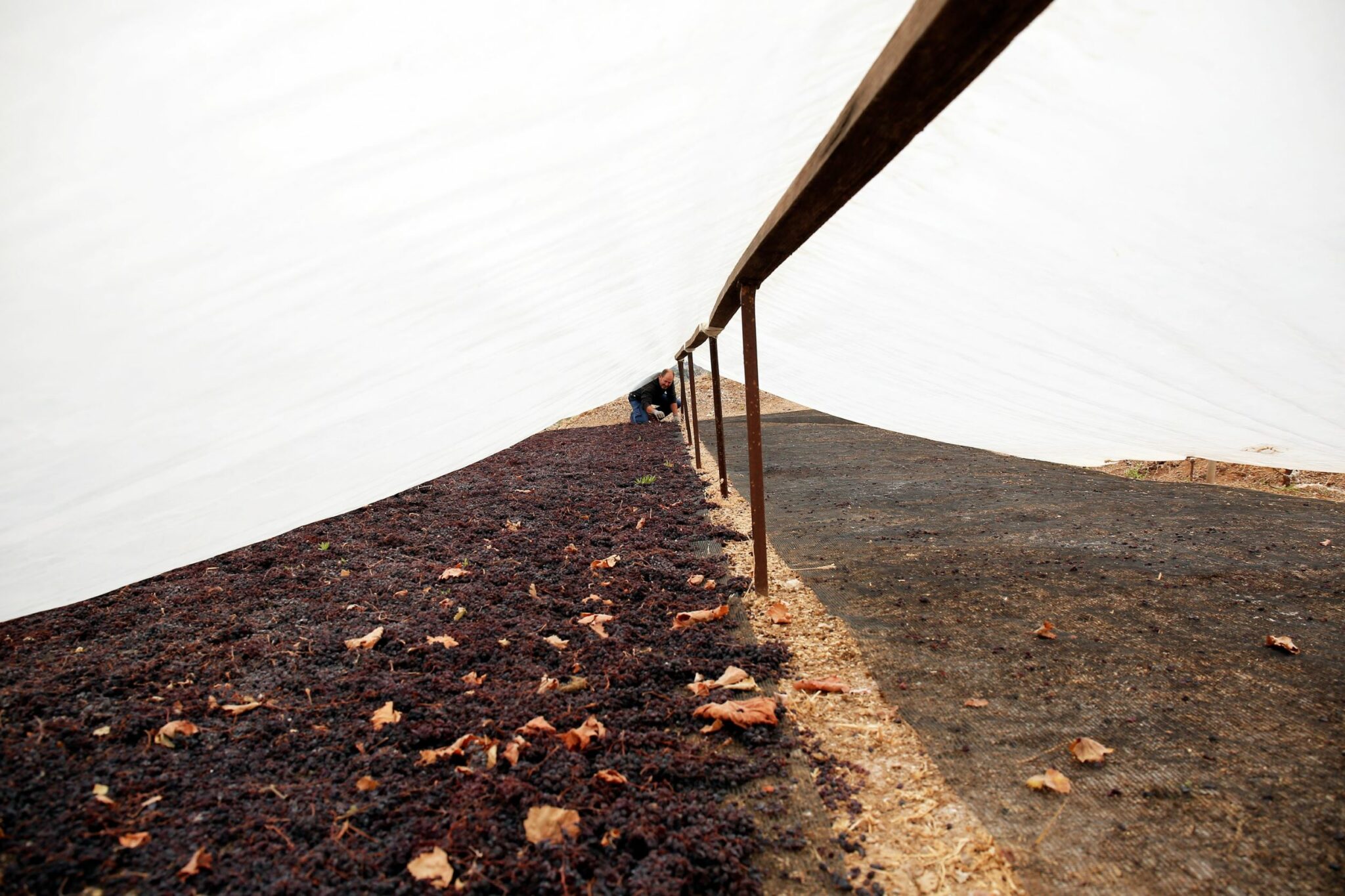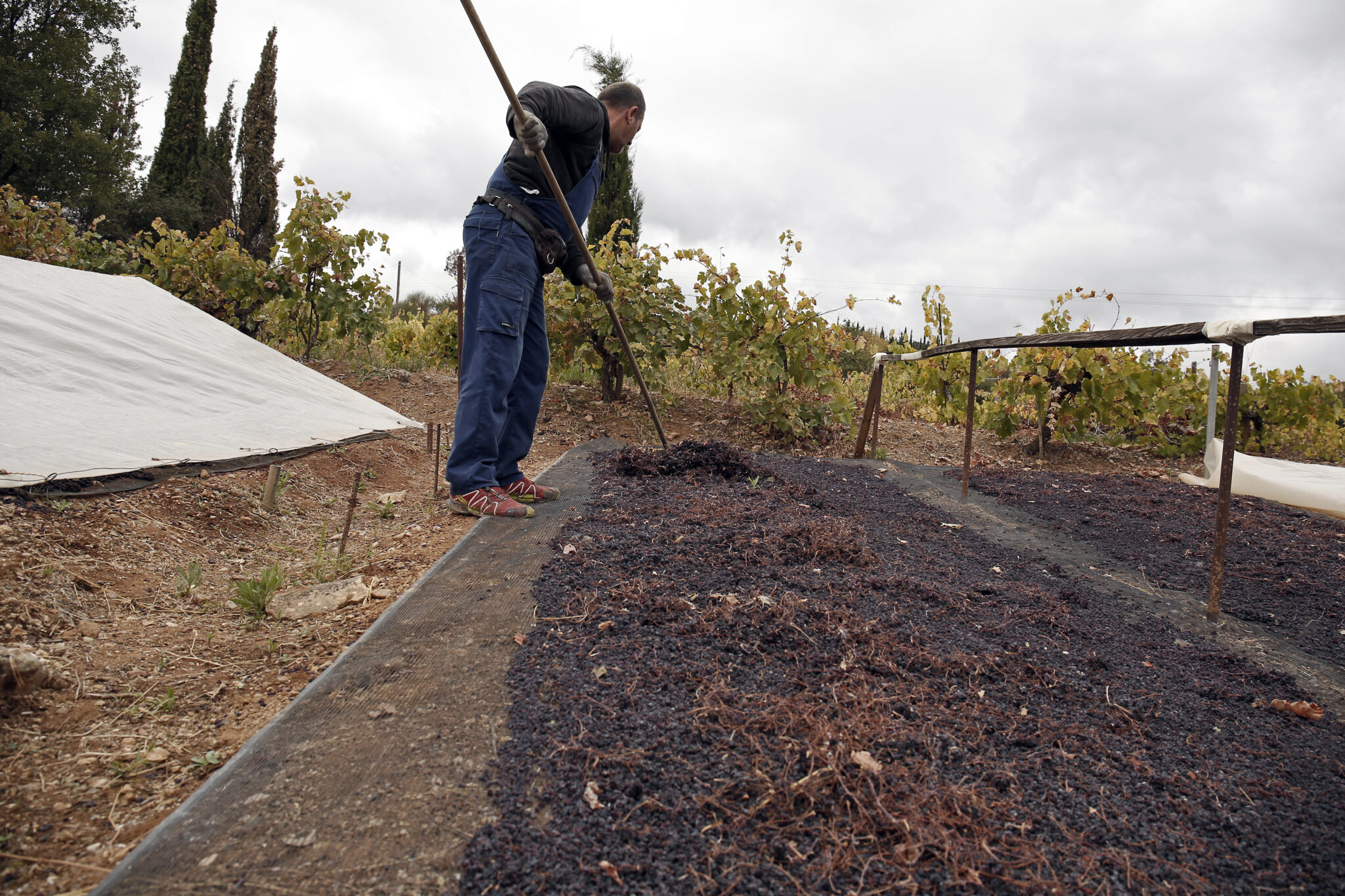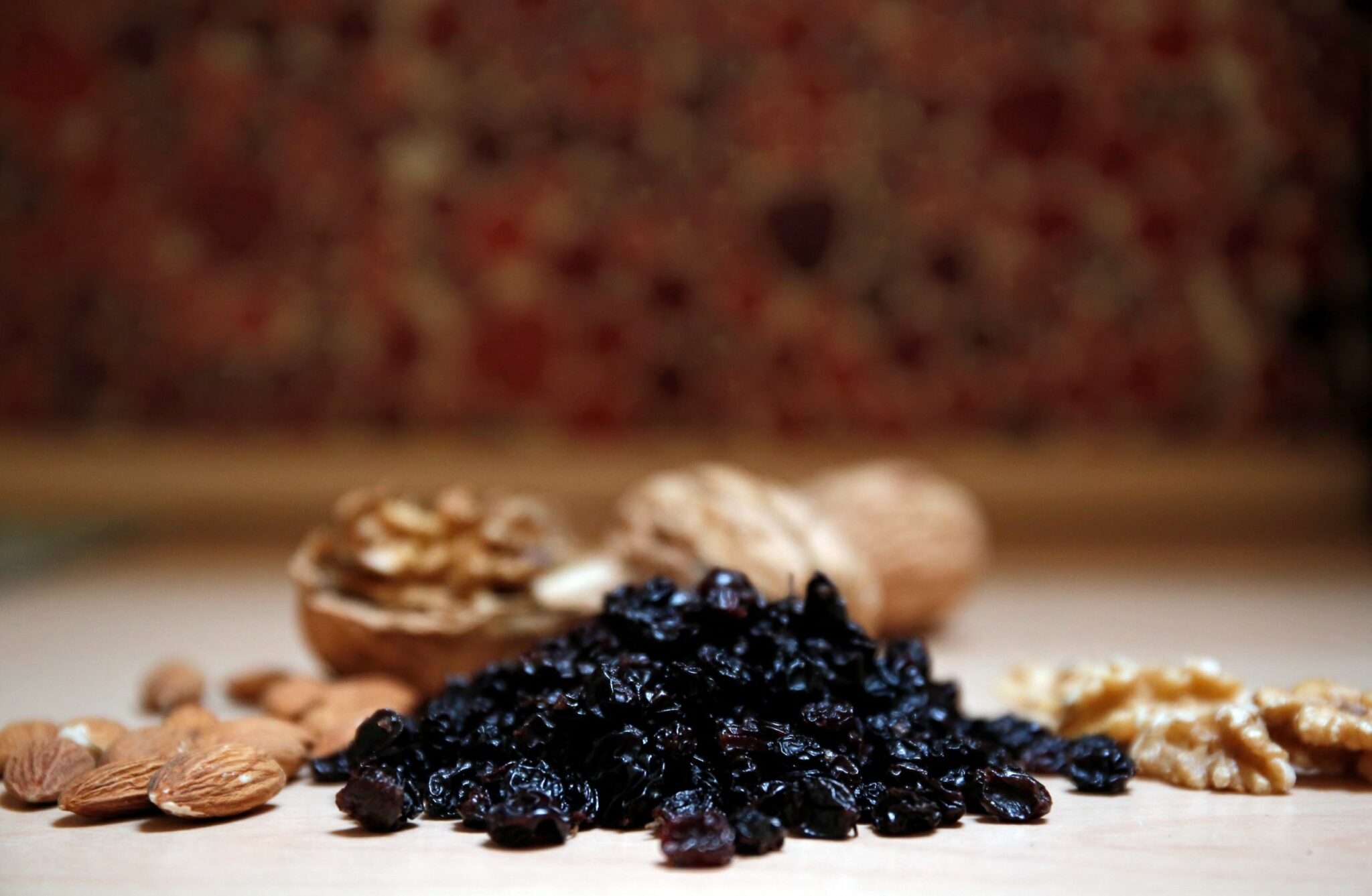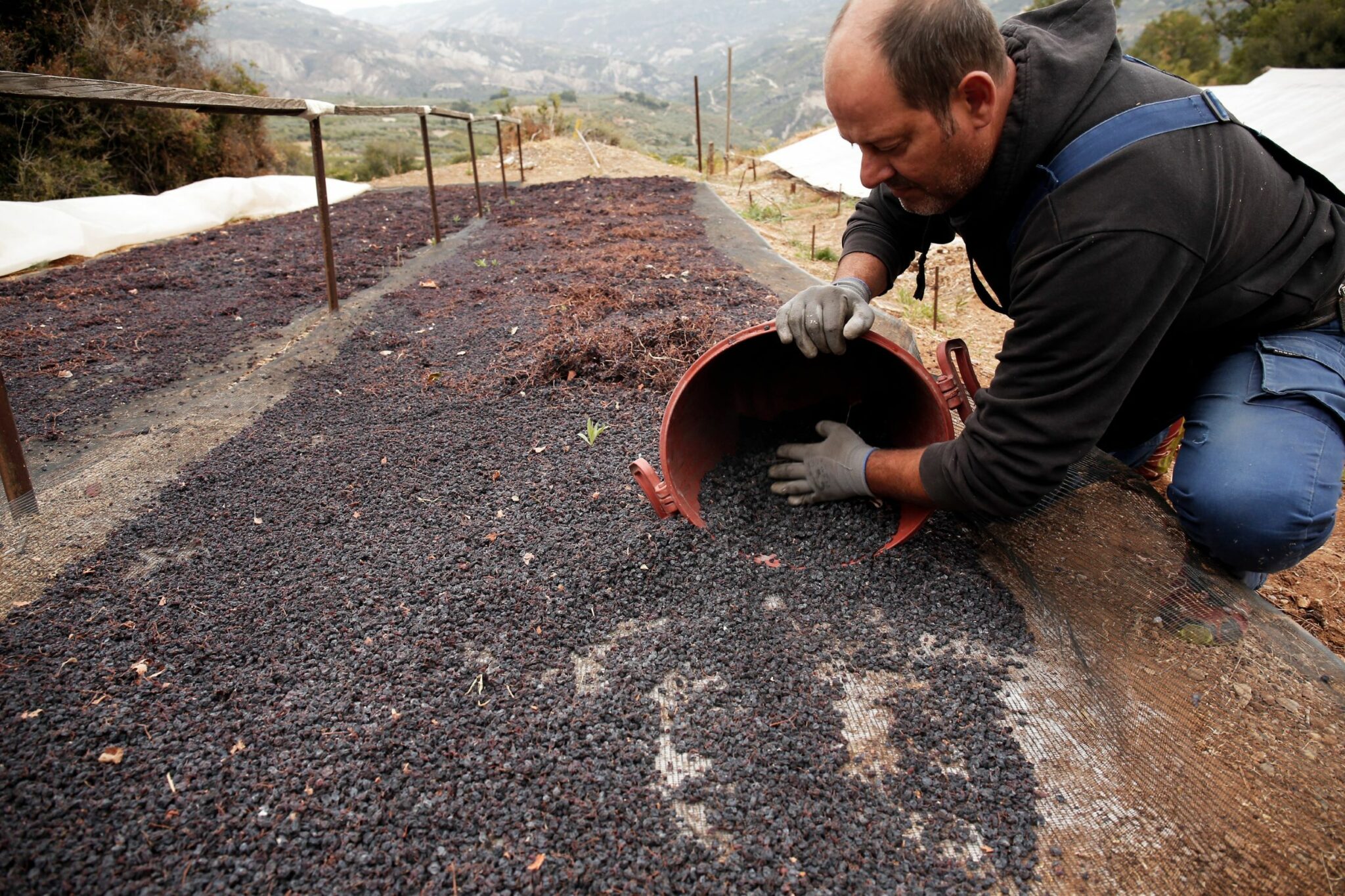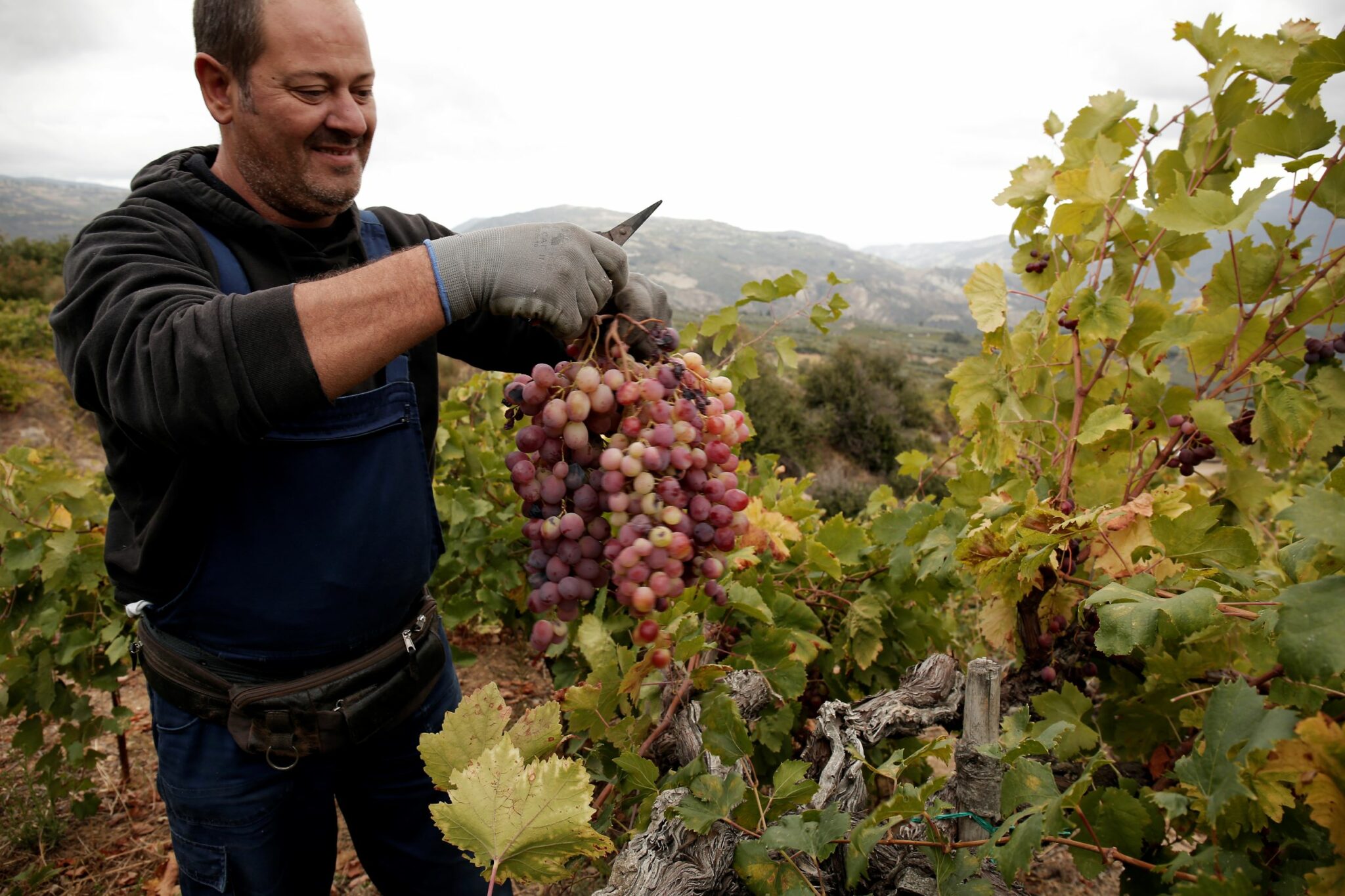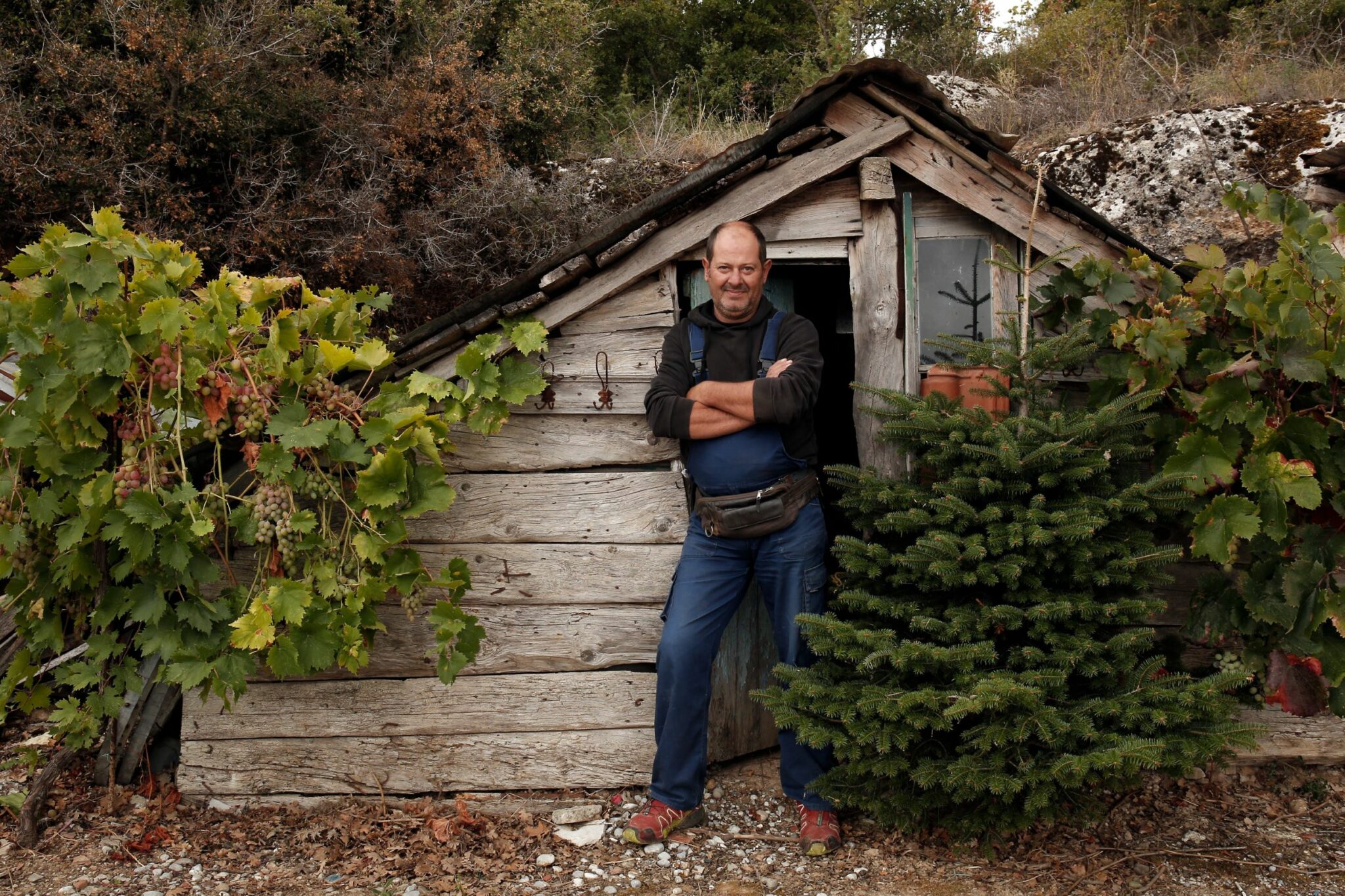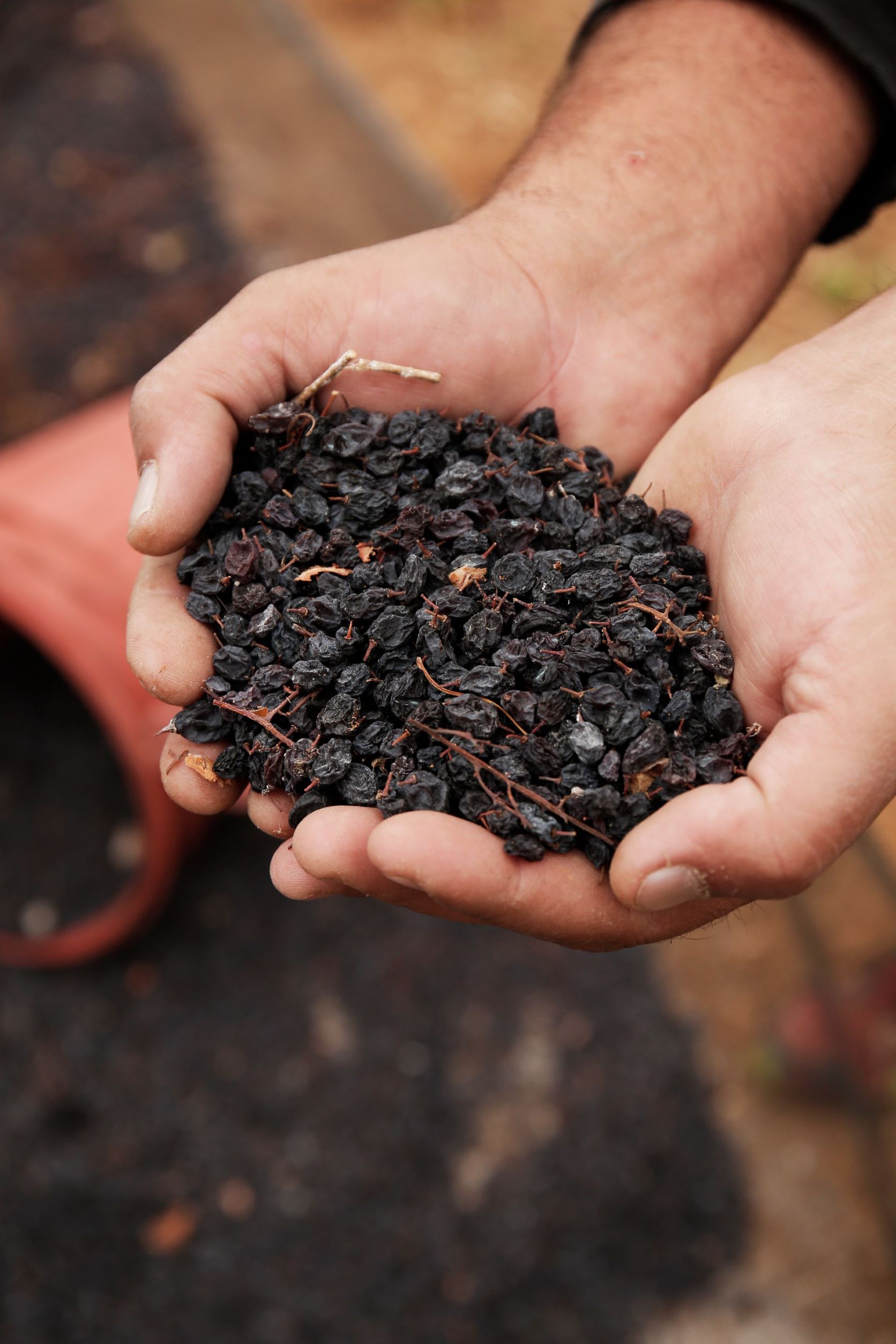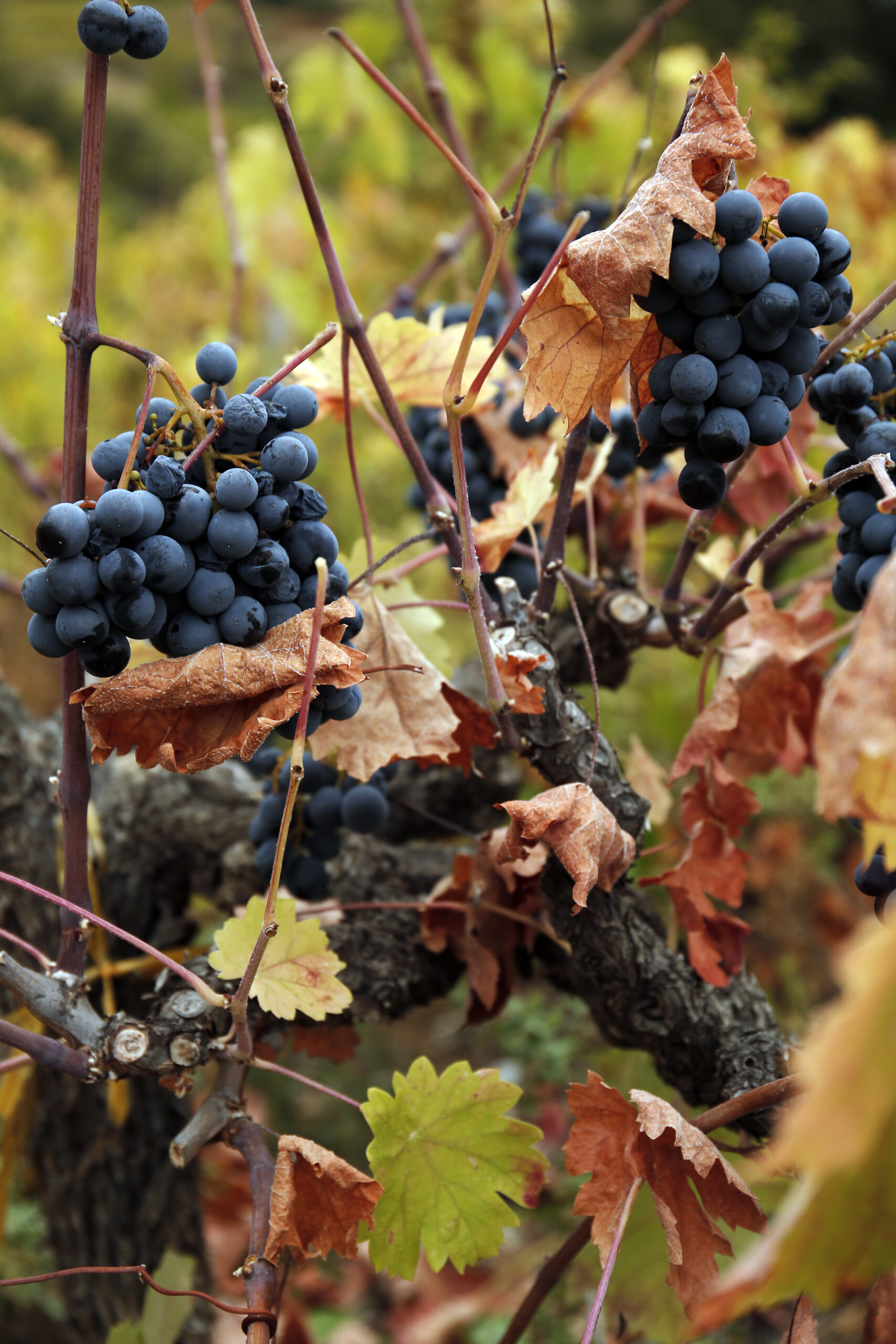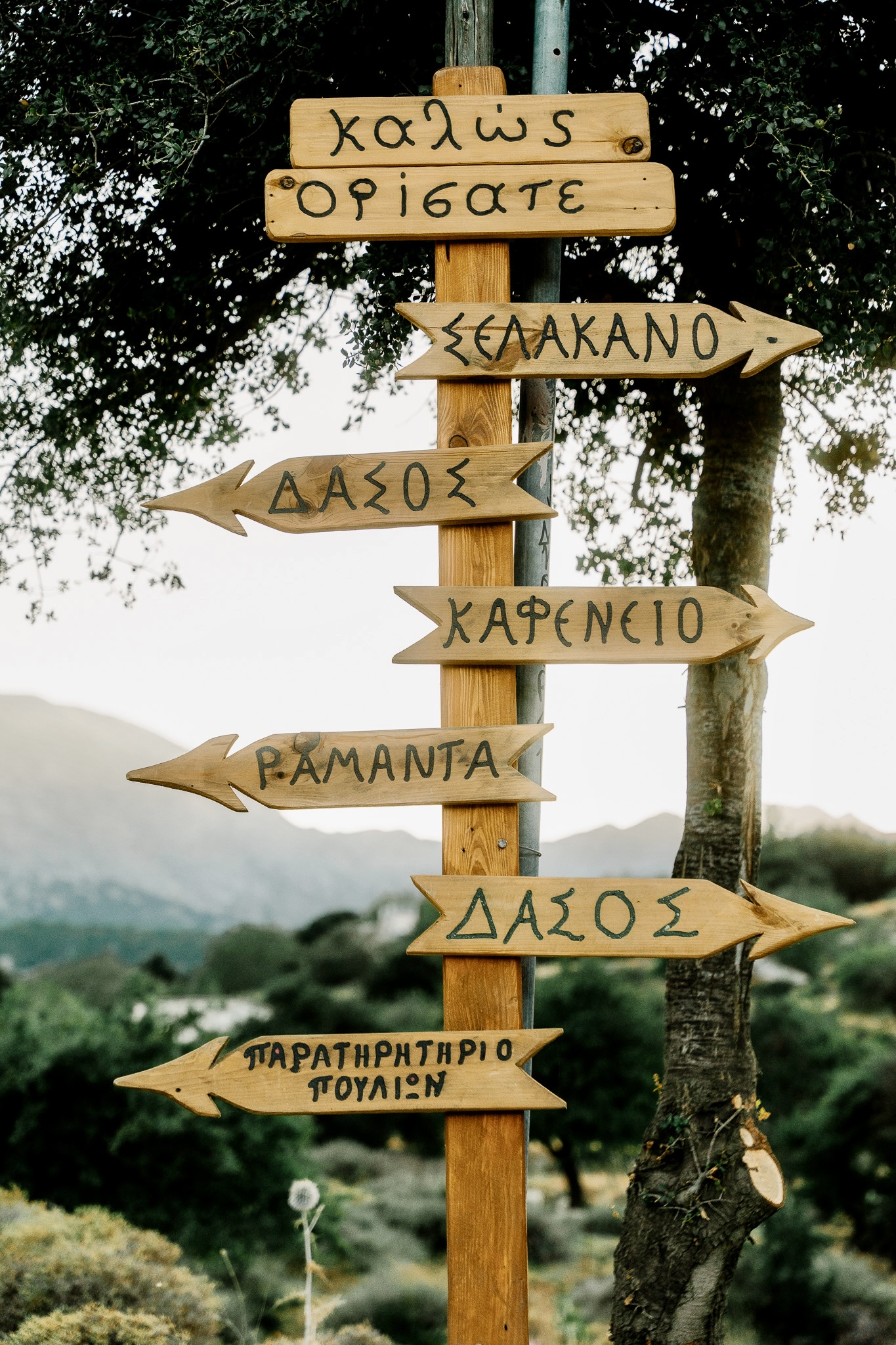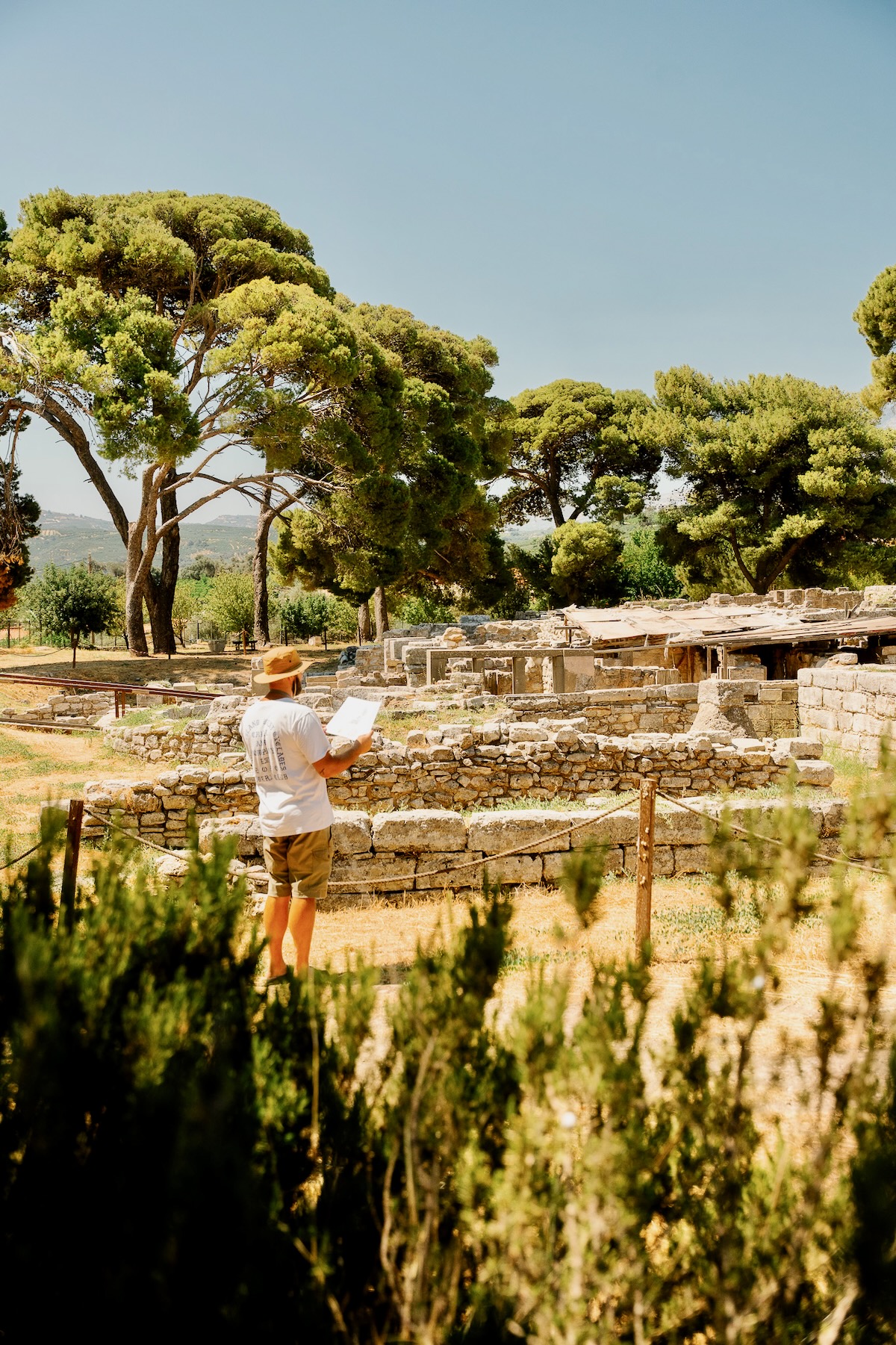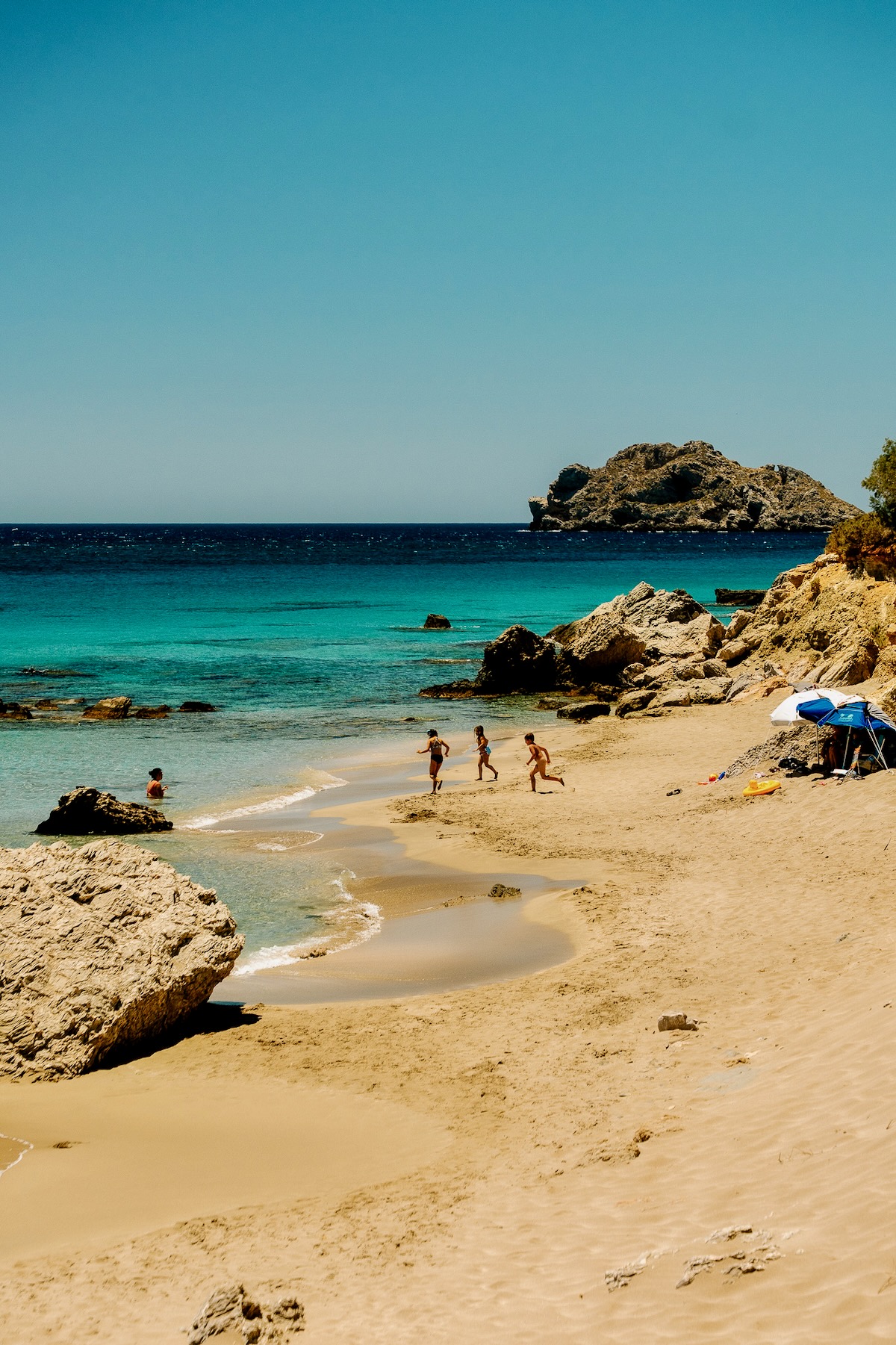A superfood with a centuries-old history, the Corinthian raisin, small, black, wrinkled, but lovely fruit, is also produced on a grand scale on the slopes at Corinth’s Trikala area. The directions seemed simple: following a sharp left turn, heading towards Xilokastro, an accessible dirt road would start on the right. At the end of this road, we would find Apostolos Politis waiting for us. However, the sharp left turns with dirt roads starting on the right were more than one, and almost identical. There were vines everywhere, growing Corinth and other varieties like fraoula (strawberry) and Mavroudi.
We finally spotted Apostolos, waving at us, among the monotonous green yellow of the leaves. He welcomed us with a wide smile, excited to offer us a tour of his property where is produces Corinthian raisins. He started his harvest in August and I’m lucky to find raisins, at the last stage of drying, in the beginning of October. I followed Apostolos on a mini presentation of the final processing stage, trying to avoid the metal bars sticking out of the ground, almost totally camouflaged, supporting the thick sheets that cover the grapes.
The grapes are left to dry in the sun for about eight days, and another three after they’ve been flipped over. The weather ultimately determines the duration of this process. The “laganisma”, that is the removal of the stems from the fruit, is next, followed by the final stage, during which larger and smaller grapes are sorted and any impurities removed. It sounds simple, right?
Apostolos Politis produces raisins in the Kato Trikala area. His 30,000 square metres of land produces an average of around 8 tonnes of small seedless grapes. Harvest started on August 27, and until the moment of my visit it still hadn’t been completed. He has been in the raisin business since 2009, he explained, as he masterly cut a few huge bunches of the fraoula (strawberry) table grape variety for me. All raisin grapes had been picked, but he showed me the wine-producing Mavroudi grapes still on the trees.
Corinthian raisin has been grown in the Greek geographical area since Homeric times, while there are records of its trade dating back to the 12th century. This superfood has been contributing to the country’s economy for many years, since it’s one of the most exportable products. “The UK is one of the biggest recipients of the raisins exported,” Apostolos informed while filling a large container with grapes. The beneficial properties of the black raisin have been proven in many clinical studies, making it one of the top superfoods.
It’s rich in fructose, potassium, magnesium, iron, antioxidant vitamin C, and polyphenols that reduce cholesterol and reduce the risk of heart disease, as well as dietary fibres (note: black raisins have more dietary fibres than most fruit) that improve the proper function of the bowel. It significantly reduces blood pressure and reduces fat accumulation, while it also helps in the prevention of some types of cancer, like colon and stomach cancer.
Holding the raisins in his hands, he seemed like a happy teenager, proud of this year’s accomplishment. We sat on the hood of his yellow truck and chatted as we looked at the sun hiding and reappearing from behind the constantly moving clouds over the Corinthian bay, a small spot on the map but blessed to produce this precious PDO product.



